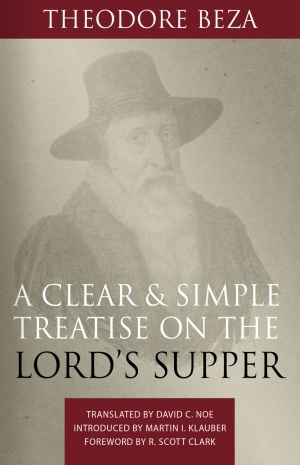On sale now at Reformation Heritage Books. Beza is one of our most important and yet most under appreciated writers.
Eating Christ: What, Why, And How (John 6:53–56)
So Jesus said to them, “Truly, truly, I say to you, unless you eat the flesh of the Son of Man and drink his blood, you have no life in you. Whoever feeds on my flesh and drinks my blood has eternal life, and I will raise him up on the last day. For my flesh is true food, and my blood is true drink. Whoever feeds on my flesh and drinks my blood abides in me, and I in him (John 6:53–56; ESV). Continue reading →









